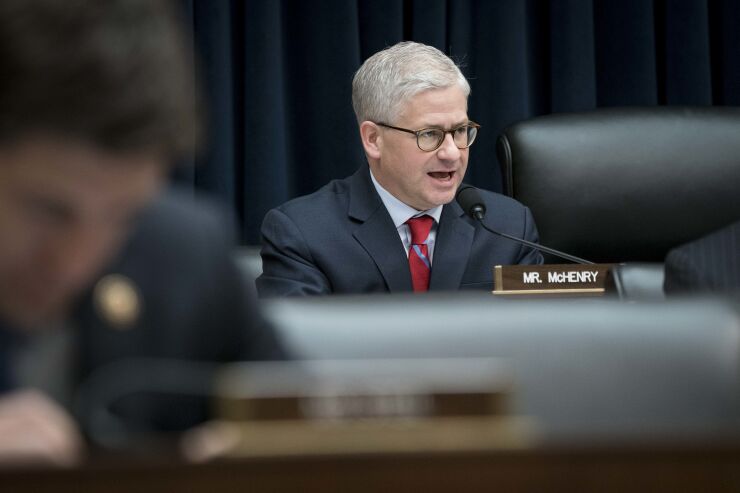
WASHINGTON — Lawmakers on the House Financial Services Committee clashed over the role of government investment in down-payment assistance and other housing programs on Wednesday with Republicans signaling a deep resistance to new spending programs until inflation recedes.
The committee was voting on several bills, nearly all of which were sponsored by Democrats. Republicans, rather than simply vote against bills they opposed, attempted to add new language that would have delayed the implementation of new programs until various inflation measures began to improve.
With midterm elections less than five months away, the struggle could be a preview of how congressional priorities will flip if Republicans take control of the House in 2023.
Two bills focused on improving the fire safety of federally assisted housing advanced through the committee with little fuss. But Republicans fought to delay other bills that would authorize the Department of Housing and Urban Development to expand existing programs or develop new ones aimed at making the U.S. housing market fairer, including a $100 billion fund to subsidize
“It's unclear what my Democratic colleagues are really trying to accomplish,” said Rep. Patrick McHenry, R-N.C. “How does establishing a $100 billion down-payment assistance program keep housing costs down, or not exacerbate inflation?”
Another bill, submitted by Rep. Al Green, D-Texas, would
McHenry attempted to introduce an amendment that would delay the law’s implementation until inflation is “back below the [Federal Reserve’s] 2% target.”
Wells Fargo, U.S. Bancorp, Truist Financial and PNC Financial were among the banks that said they are raising their prime lending rates from 4.0% to 4.75%.
But Green and other Democrats on the committee argued that some forms of government spending could alleviate inflation pressures for Americans in the near term, particularly around housing affordability. Green argued that more resources dedicated to ensuring fair access to housing would translate to better economic outcomes for low-income communities around the country.
“I don’t think we should avoid doing what we can do until we can get something else done,” said Green, referring to reducing inflation. “This is something we can do.”
Rep. Ayanna Pressley, D-Mass., sponsored a bill to create another HUD pilot program designed to better support the housing needs of “intergenerational” households, such as those led by grandparents. That bill was met with an amendment from Rep. Blaine Luetkemeyer, R-Mo., which would have delayed the bill until HUD certified that wage growth outpaced inflation.
None of the inflation-focused amendments introduced by the committee’s Republican minority on Wednesday were passed by the committee.
House Financial Services Chair Maxine Waters, D-Calif., chastised her GOP colleagues for attempting to “basically overtake” the proceedings with unrelated inflation measures and disputed Republican claims that the economy under the Trump administration was especially healthy, particularly for communities of color.
“Today, we’re talking about housing discrimination,” Waters said. “Discrimination is a fact, continuously, in this country by those who claim that they are responsible for doing better by the economy. For those of us who are people of color, that is a ridiculous argument.”





